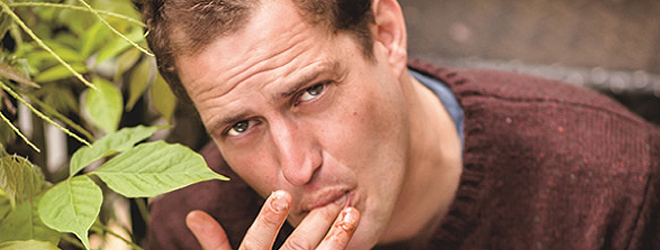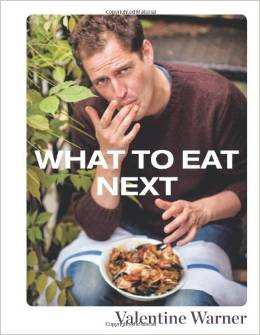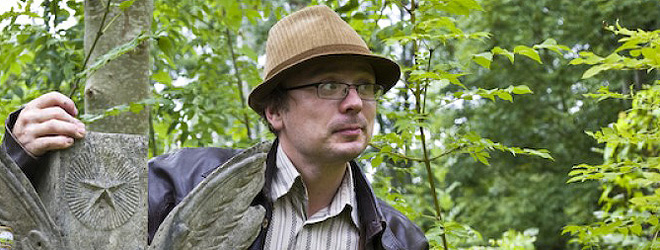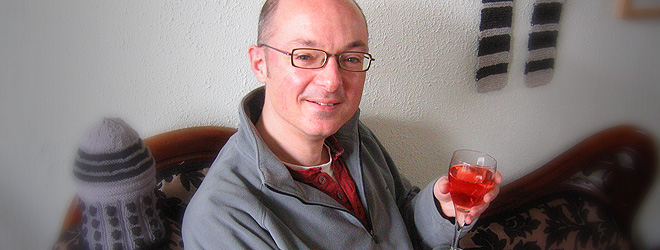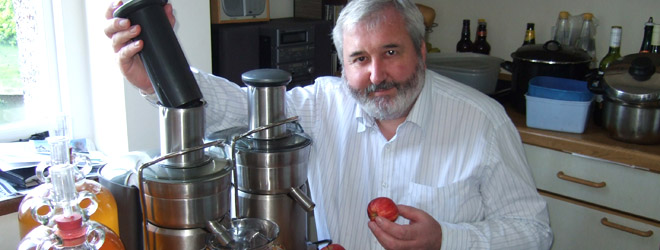These days there are plenty of chefs who talk a good game when it comes to sourcing fresh, local and seasonal ingredients, but few approach the task with the hands on enthusiasm of Valentine Warner. Equally at home with a fishing rod basket or gun as he is with a kitchen knife, the popular TV chef displays a genuine passion for, and understanding of, food and the environment that provides it.
True to form, when I speak with him, it’s mid morning and he’s in buoyant mood having just returned home from a successful hunting trip. “I’m afraid to say I’ve already been at the teal very early in the morning” he tells us “ Now this time of year is upon us there have already been a few teal, and mallards, on my plate. It’s hard to find a lot in butchers so I have to get them myself. In a way i see my my gun as very useful kitchen utensil.”
Having only ventured as far as the fridge for my jammy toast topping, I’m feeling envious. Not least because it’s irrefutable that hunting and gathering your own food intrinsically makes it taste nicer. But according to Valentine, there’s more than taste alone that makes the hunter gatherer a more enlightened soul. “The more you know about food, the more you know about life” he declares. “Nature is the very reason we are allowed to be here and we have to use it wisely . Without nature we cant exist on this earth. The more hands on you are, the more your fingers are in the soil, the more you understand the ripples of nature, then better the position you’re in. We’re dependent on others to make our food for us – unwise I would say. And understanding food and cooking saves alot of money to boot.”
And this enlightenment, the interest in food provenance, would appear to be something more people are seeking out for themselves? “Yes and no”, offers Valentine, with caution. For some people, simply providing food for the family is a priority with affordability and time playing a significant role in how that food is sourced. But for those more fortunate Valentine sees a big change in the role food plays within the modern lifestyle. “I think it’s become a hobby where as once it was very much not, especially pre-war, where the majority of everyone lived well below the poverty line. I can’t imagine that even 50 years ago everyone would go to dinner and talk about food. Food is a delight and a struggle, with the rural to urban migration causing a lot of problems. We are collectively losing so much essential information, even the life skill of cooking. Food revolution, I’m not so sure. A revolution over food I wouldn’t be surprised.”
And with that interest in food and where it comes from, there is now a burgeoning interest in foraging – something Valentine himself is well known to partake in. “I don’t just eat foraged food” he reminds us “I don’t expect people, when they get home from a busy day, to go with a bucket around the lanes. That would be unrealistic. But I just think it’s better to know when you’re standing next to a cobnut tree than not because then you have options. It’s good to know what a horseradish looks like because if you happen to be passing one then you can pull it up. It’s not about going to get stuff it’s about seizing an opportunity when it arises.”
Scandinavian experience
Thanks to presenting a TV series on the Good Food channel, Valentine recently had the opportunity to learn more about food and nature in that most vogue of regions, Scandinavia. And, it seems, he revelled in the experience “Sweden and Norway are very large and very remote places, and where you find remote communities people have a much stronger identity when it comes to food. They’re not urbanised. You find a lot of people cooking with what immediately grows around them – you get all the kids picking berries in the summer and everybody hunts and fishes. And in those remote parts, you simply would never dream of wasting food, which you get in built up towns. In the winter it’s about survival and the way people treat food, and the things they use – I found it absolutely wonderful.” And that sense of community, doing things the way it has always been done, is something that has become lost in the more urbanised UK? “You don’t need to inherit your Grandmother’s recipe book living in London, you can just go and buy pizza.”
Having immersed himself in the remote Scandinavian way of life I wondered if there was anything out there he encountered that he wished was more accessible back at home. “Cloudberries, one of the most delicious berries I’ve ever eaten. Totally unlike anything that we’re used to: little orange berries that grow in the Boreal Forest. It’s one of the most amazing fruits.” Instinctively, my thoughts turn to booze. Do they make alcohol from cloudberries? Did Valentine try any? Of course they do, and of course he did “We got absolutely pie eyed on schnapps, and there were lots of wonderful fruit liqueurs made of berries.”
Proper booze
Booze is, of course, one of the main reasons we were so keen to speak with Valentine. Besides the hunting, the foraging and the cooking, he’s a man who appreciates proper booze: cider. “I’m a big, big cider drinker” and not just any old cider, but cider made the traditional way – although he’s not as disparaging of the big commercial makers as you might imagine. “It’s very easy to complain about all the ciders that you drop ice in and all those horrible fruit ciders which we won’t name. But off the back of that it’s inspired lots of apple cider makers who make it the old way to get going, and actually these big companies have done a world of good for the small companies. I think it’s silly to bash them because there are now lots of independent makers on the market who wouldn’t have been there as other big brands have become popular. Cider is having a boom and I’m really pleased to see what’s going on.”
As well as cider and cloudberry schnapps, Valentine is also a fan of gin and whisky. So much so that, for his next project, he’ll be swapping his grill for a still and opening up a new gin and whisky distillery in Northumberland. Naturally, we’ll have a long wait to try the whisky, but the first batches of ‘hepple gin’ will be rolling off the line “around spring” next year. Inevitably, the ingredients will be key. “The amazing thing about where we’re making ours is that we have all our own ingredients. We have our own water and all the botanicals off the moor – we cant help but walk all over it.” Although he will be importing juniper to start with, even this most Scandinavian of berries will eventually be provided by trees planted around the house, many of which are already very established: “Our juniper will be making a contribution to every bottle”.
It sounds like an exciting new adventure for Valentine to get his teeth stuck into – hand crafted booze with quality, locally sourced ingredients. And I’m sure it’s something plenty of people will want to talk about at the dinner table.
+++++
Quick fire favourites
Favourite cider? “Dunkertons Black Fox at a hardcore 7%. It does slightly knock you off your perch. And for perry, Severns Perry is absolutely spectacular.”
Favourite apple variety? “I really like Egremont Russets. I love them! And I love a Bramley, they’re great to cook with.”
Favourite recipes featuring cider? “Lamb and cider pie. And onions very slowly cooked in cider with a piece of fried plaice on top.”
Favourite fish? “Mackerel is my favourite fish in the world, but only if I catch it myself. Battleship grey mackerel on the supermarket counter is not great. It’s got to have those rainbow colours and have that lovely dark green to it.”
Favourite mackerel recipes? “Fresh mackerel with a little bit of wild fennel butter or just eaten raw with some horseradish. When I find I’m getting sick of mackerel I tend to batter it in cider batter and deep fry it and make a sweet n sour sauce to go on it. You’ll have to book the good table if you want that recipe.”
Favourite chef? “Nieves Barragán who is the chef at Barrafina in London. That’s my favourite restaurant. She’s great!”
Valentine Warner’s latest book ‘What to Eat Next’ and published by Mitchell Beazley is packed with great recipes for deliciously simple meals that make stars of the ingredients. Go on, get your hands on a copy…
For mor information, check out Valentine’s website www.valentinewarner.com


